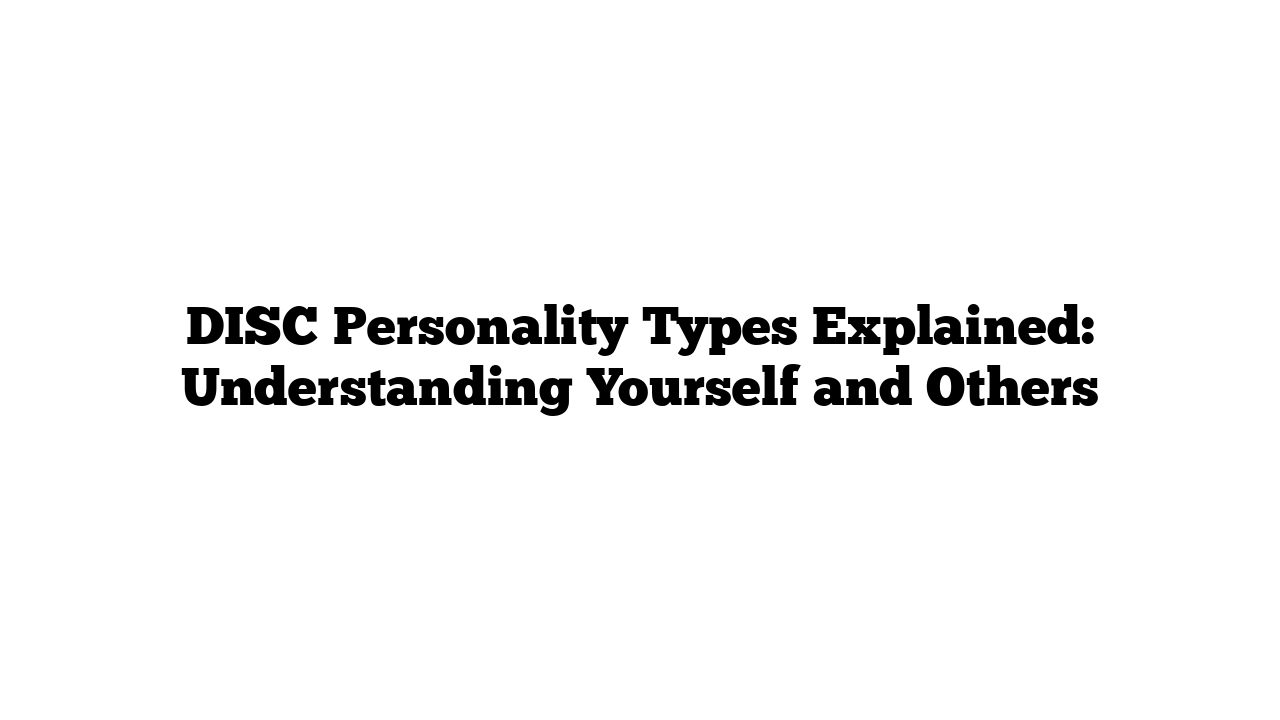Understanding your personality type can significantly improve how you communicate with others, whether at work or in personal relationships. One tool that has helped many people and organizations achieve this is the DISC Personality Assessment. This tool identifies four primary behavioral styles, helping you understand your tendencies and those around you.
What is DISC?
The DISC Assessment is based on research by psychologist William Moulton Marston. He found that people generally express their emotions and behavior through four main styles: Dominance, Influence, Steadiness, and Conscientiousness. These styles form the foundation of the DISC personality types.
Most of us gravitate toward one or two styles, and that’s how your DISC profile is created. Many companies in the USA use DISC to help employees work better together. While comprehensive versions of the DISC test are available for purchase, you can also find free versions online. Though they might not be as detailed, they can still give you valuable insights into your personality.
Let’s break down each personality type so you can better understand yourself and the people around you.
Important Points About DISC
Before we dive into the specific DISC types, it’s essential to remember that DISC doesn’t capture every facet of your personality. It’s more of a snapshot of how you behave in different situations. Also, your personality style may change depending on the environment—whether at work, with friends, or in stressful situations.
Each DISC type has its own strengths and challenges. No one type is better than the others, and understanding this can help you foster better relationships in both personal and professional settings.
Dominance (D)
Dominant personalities are direct, results-oriented, and comfortable with risk. They don’t like small talk, preferring to get straight to the point. A dominant person values efficiency and action, often taking charge in leadership roles.
- Strengths: D personalities are decisive, goal-focused, and not afraid of challenges or confrontation. They’re often seen leading teams and driving projects forward.
- Challenges: They can come across as impatient or insensitive, so if you’re a high D, try to soften your tone when speaking to others. Be mindful that some people need more time to process information and make decisions.
“High D personalities may seem tough, but often they just want things to get done quickly and effectively.”
Influence (I)
The Influence type thrives in social settings. These personalities are outgoing, enthusiastic, and love interacting with others. They are natural communicators and excel in environments where teamwork and social connections are important.
- Strengths: High I personalities are great at building relationships and inspiring others. They often bring energy and positivity to a group, making them ideal in social or team-based environments.
- Challenges: They can be disorganized when stressed and may worry too much about what others think. If you’re a high I, it’s important to manage stress and focus on staying organized.
Steadiness (S)
Steady personalities value harmony, cooperation, and stability. They tend to be calm, supportive, and great team players who avoid confrontation. High S individuals are loyal and prefer to work behind the scenes, ensuring that everyone gets along.
- Strengths: S personalities are excellent listeners and are deeply empathetic, often fostering strong personal relationships.
- Challenges: Because they dislike conflict, they may avoid addressing issues head-on, which can sometimes lead to unspoken frustrations. If you’re an S, practice setting boundaries and handling conflict when necessary.
Conscientiousness (C)
Those with a Conscientious personality are task-oriented and logical. They value accuracy and attention to detail. High C types are methodical, relying on data and facts to make decisions.
- Strengths: C personalities excel at problem-solving and thrive in environments where precision and accuracy are valued. They often produce high-quality work and like to plan carefully.
- Challenges: Their perfectionist tendencies can lead to over-analysis or being overly critical of themselves and others. If you’re a high C, remember that sometimes done is better than perfect.
Final Thoughts: Which DISC Type Are You?
Understanding the different DISC personality types can help you improve your communication and relationships, whether in the workplace or your personal life. No matter which DISC type you are, each has unique strengths and challenges, and learning to recognize these can help you better understand yourself and others.
Want to learn more about DISC and how it can benefit you? Visit medicaltimes.io for more resources and information!
By using DISC, you can gain valuable insights into your behavior and that of others, helping you communicate more effectively and build stronger relationships.
